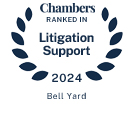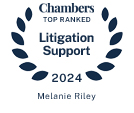• HSBC was behind Eclipse investors being told they were going to exploit the rights to a number of Disney’s most popular films, including Pirates of the Caribbean 2 & 3, National Treasure 2, Enchanted, Underdogs and Confessions of a Shopaholic
• But none of the rights to any of these films were in fact ever to be actively traded or genuinely exploited
• As a result, far from achieving investment returns and legitimate tax deferral, investors have ended up with huge losses and potential liabilities.
Edwin Coe LLP, a UK law firm specialising in fraud and group litigation, this week filed a claim on behalf 371 investors against HSBC UK Bank plc (“HSBC”) for the losses caused by its private bank’s role in the conception, development, and marketing of a series of Disney film financing schemes known as the Eclipse Partnerships (“Eclipse”). The Claimants allege they were induced to invest on the false promise that Eclipse represented a genuine opportunity to invest in blockbuster Disney films and that HSBC is liable for fraud.
HSBC is believed to have received over £25m in fees for its role in Eclipse. In contrast, many investors have entered bankruptcy and/or are facing HMRC demands for millions, sometimes as much as ten times their original investment, on non-existent tax relief or deferrals, simply as a result of investing in these partnerships in good faith.
Eclipse was open to investors between 2006 and 2008 and was marketed as a legitimate, tax efficient, investment. It is believed some 750 individuals including dentists, doctors, accountants, bankers and footballers as well as police officers invested c.£2.3bn of capital in Eclipse, all of whom obtained loans to supplement their investment, the interest on which was to be covered by the eventual return on their film exploitation rights investment.
However, no trade in film rights were ever actually made by Eclipse with Disney.
“It is now clear Eclipse was a passive pass through model via which the rights to Disney’s films circled back to the studio. Eclipse was a sham investment opportunity,” comments David Greene, Senior Partner at Edwin Coe LLP.
“Although the investment was touted as having the blessing of leading tax counsel, the conduct of these schemes veered away from that advice,” David Greene continues. “It appears the investments made by our clients were simply transferred between funder and Disney entities in a circular, self-cancelling fashion. It was a risk-free income stream for Disney, HSBC and the lending banks – but financially catastrophic for its unwitting investors. At no point did Eclipse actually exploit, or otherwise trade in, any meaningful film rights of any value from Disney.”
Retired policeman and lead claimant Chris Upham comments:
“My wife and I were attracted by an opportunity to invest in films which had the backing of major banks, Disney and City tax lawyers. It seemed a great opportunity and exciting to be involved with blockbuster films. My wife and I invested £25,000 of our own money in 2007.
“It was marketed to us by professionals and seemed totally above board. It is beyond disappointing to discover that the investment was not as it had been purported to be, In simple terms, we have been deceived. To find out that a bank like HSBC was sitting behind all this increases the anger we feel at having been cheated. The whole thing became an absolute horror story when the taxman demanded tax at stratospheric levels resulting from HSBC’s management of the investment – yet we didn’t earn a bean and our money has been lost.
“It is outrageous that once-revered institutions such as HSBC can behave in such a dishonest way in pursuit of profit but we’re the ones being chased by the taxman, in some cases into bankruptcy.”
The current claimant group is seeking in excess of £1.3bn in loss and damages. Trial is not expected to be heard until 2021 at earliest.
Other Eclipse investors not yet party to the group action are invited to join by contacting Edwin Coe on Thomas.Johnson@edwincoe.com.
ENDS
NOTES TO EDITORS:
The Eclipse scheme’s architects were Neil Bowman, formerly of HSBC Private Bank UK, and Tim Levy, of Future Capital Partners Ltd, a UK company, which purported to provide film advisory services to investors and is now in voluntary liquidation. In 2009, having profited from the Eclipse schemes, HSBC shut down the team in its Private Bank division that was dedicated to activities that included marketing this improper investment.
TAX-DEFERRAL STRUCTURES BACKGROUND:
Tax-deferral structures in film investment were established by Rt Hon Gordon Brown’s government and were intended to encourage investment in the UK film industry (via Section 42 of the Finance (No 2) Act 1992 and section 48 of the Finance Act 1997). Investors in authorised film finance schemes could offset the investment against their taxable income from other sources received across a number of tax years using sideways loss relief under section 380 of the Income and Corporation Taxes Act 1988 (ICTA 1988) (latterly section 64 of the Income Taxes Act 2007), and expenditure incurred in such venture was treated as revenue expenditure rather than capital expenditure and so could be deducted from income.
After the Finance Act 1997, a common way to access these reliefs was through a leveraged sale-and-leaseback structure by which a film was acquired from a film studio by a special purpose partnership and then leased back to the studio over a period of time, usually 15 years. Investors would qualify for a deferral of tax for that period of time. To maximise their tax relief, investors would often borrow to fund their capital investment in the relevant partnership.
Section 125 of the Finance Act 2004 and section 73 of the Finance Act 2005 amended ICTA 1988 to curtail the tax relief granted under sections 42 of the 1992 Act and section 48 of the 1997 Act. Relief was further curtailed by the removal of references to films in the Income Tax (Trading and Other Income) Act 2005 (ITTOIA 2005).
In broad terms, the cumulative effect of these restrictions was that sideways loss relief became limited to those actively involved in film rights exploitation. This precluded the original sale-and-leaseback structure from attracting relief because, in those structures, investors were passive and not actively carrying on a trade in exploiting films.
The Eclipse Partnerships were conceived, developed and marketed by HSBC as a solution to the narrowing of tax relief for film finance schemes.
Unbeknown to investors, the transactions actually undertaken by Eclipse failed to adhere to what was promised. Far from providing a tax deferral opportunity by way of legitimate trade (see the Court of Appeal’s decision in Eclipse Film Partners No 35 LLP v HM Revenue and Customs [2015] EWCA Civ 95, the exploitation rights to certain blockbuster Disney films, such as Pirates of the Caribbean 2 & 3, were never acquired by the Eclipse Partnerships or its operators, HSBC and Future Capital Partners (the film advisory entity involved) – contrary to assertions made in the marketing materials. Quite simply there was no exploitation of the films’ rights by Eclipse at all and therefore no revenue stream.












